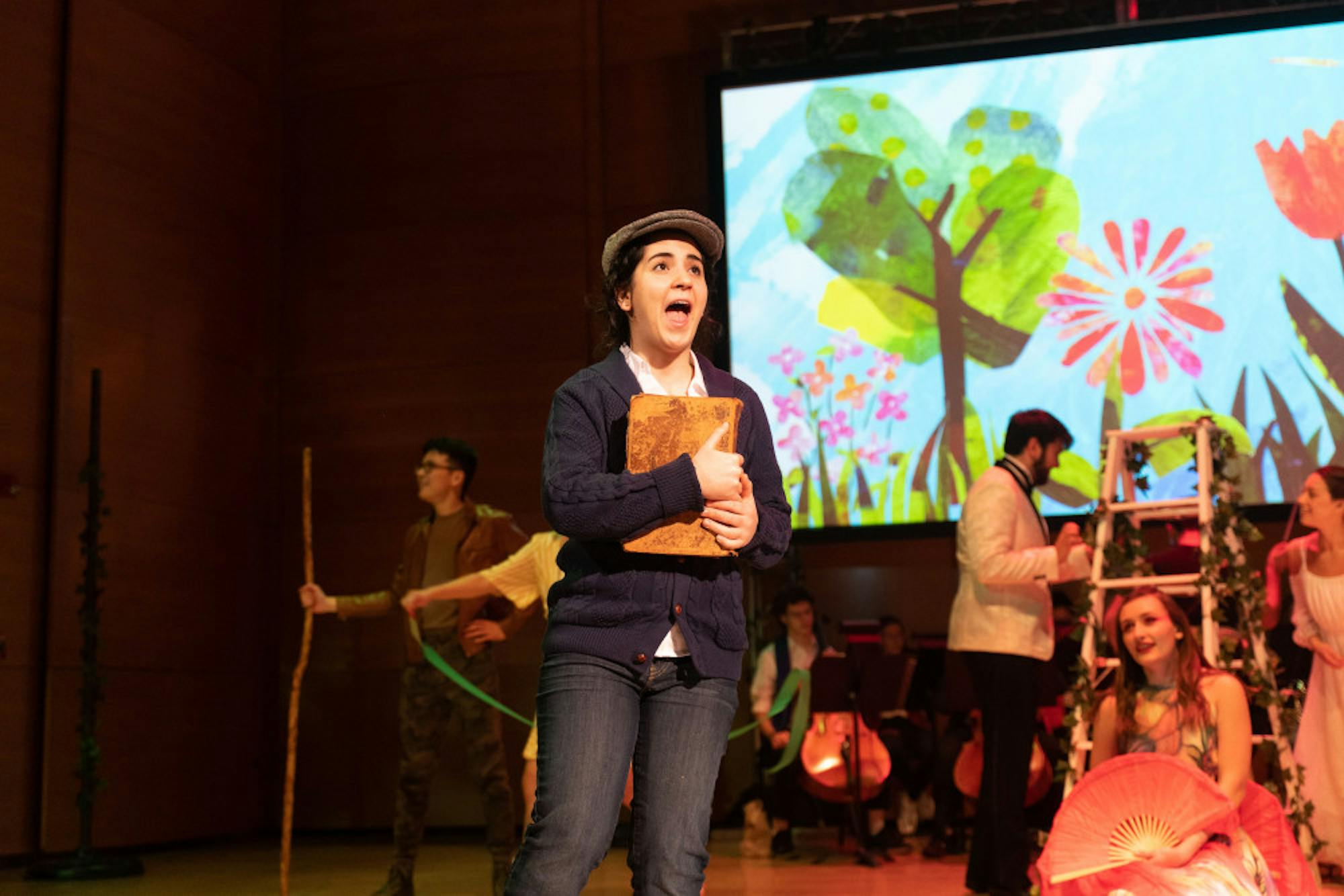This past weekend saw the inaugural performance of a pair of new operas, “The Nightingale and the Rose” and “The Happy Prince,” by the Tufts University Opera Ensemble. Based on short stories of the same name by Oscar Wilde, the one-act operas were written by Department of Music faculty member and Opera Ensemble co-director Thomas Stumpf. The ensemble gave two performances this weekend: one on Saturday and an afternoon matinee on Sunday. Junior Iverson Eliopoulos conducted the chamber orchestra which accompanied the performances.
Stumpf composed the original scores for the operas with Tufts students in mind. In a note at the end of the production’s playbill, Stumpf described that he endeavored to "write roles that would challenge but not frustrate the singers of the Tufts Opera Ensemble” and to "create a chamber orchestra that was small enough to fit on the Distler Hall stage.” The students, he wrote, rose to every challenge offered by the music. “Everything that was difficult about my music was eventually mastered,” Stumpf notes proudly in the program. The stories on which the operas are based were pulled from Stumpf’s own childhood. As an adult, he noted in the program, he “was aware of the depth of multi-layered meanings contained within them.”
The first opera, “The Nightingale and the Rose,” starred senior Kyra Link as the titular Nightingale, who sacrifices her life to help a lovesick student (sophomore Mona Tavangar) win the heart of his professor’s daughter (junior Mikayla Barreiro). But her sacrifice is in vain; the latter spurns the former’s gift of a red rose in favor of expensive gems gifted to her by a lord’s affluent offspring. Nevertheless, the chorus unites in the finale to vindicate the wisdom of the Nightingale’s final act of selflessness, singing that “the Nightingale, who knew that Love is better than Life and dies not in the tomb — the Nightingale died happily ever after.”
“The Happy Prince” eschews the fairytale forest in “The Nightingale” for a town square in 19th-century London. It featured junior Maya Lazarus as the gilded statue of a prince who enlists a swallow (senior Chloe Malouf) to help him perform acts of kindness for the suffering citizens who were once his subjects. After helping the statue give away ornamental gems and a gold leaf to people in need, the swallow dies at the prince’s feet, and the city’s shallow aristocracy melts down the now-ragged statue. The leaden heart of the prince, however, cannot be melted.
The world premiere of this production required the work of dedicated students and staff. Eliopoulos was tasked with gathering the talented students who comprised the chamber orchestra. The quality of these performers was of the utmost importance; Stumpf carefully constructed the chamber ensemble “to provide sufficient color and texture” to the music while meeting the constraints of the performance space, he wrote in the show’s program. It was at the behest of Opera Ensemble co-director Carol Mastrodomenico that Stumpf committed to write the operas in the first place. As such, Stumpf saved his last round of thanks in the program for the staff and performers who made the show possible.
“[A]ny piece of music is only as good as the performance it receives,” he wrote , “and I know that Carol [Mastrodomenico] and all the students involved in this production have done their utmost to make the performance beautiful and meaningful and engaging. My deepest thanks to all of them, and I hope you enjoy their gift.”
Tufts Opera Ensemble premieres tales of love and sacrifice reborn

The Tufts Opera Ensemble performs "The Nightingale and the Rose" in Distler Performance Hall on Feb. 15.





